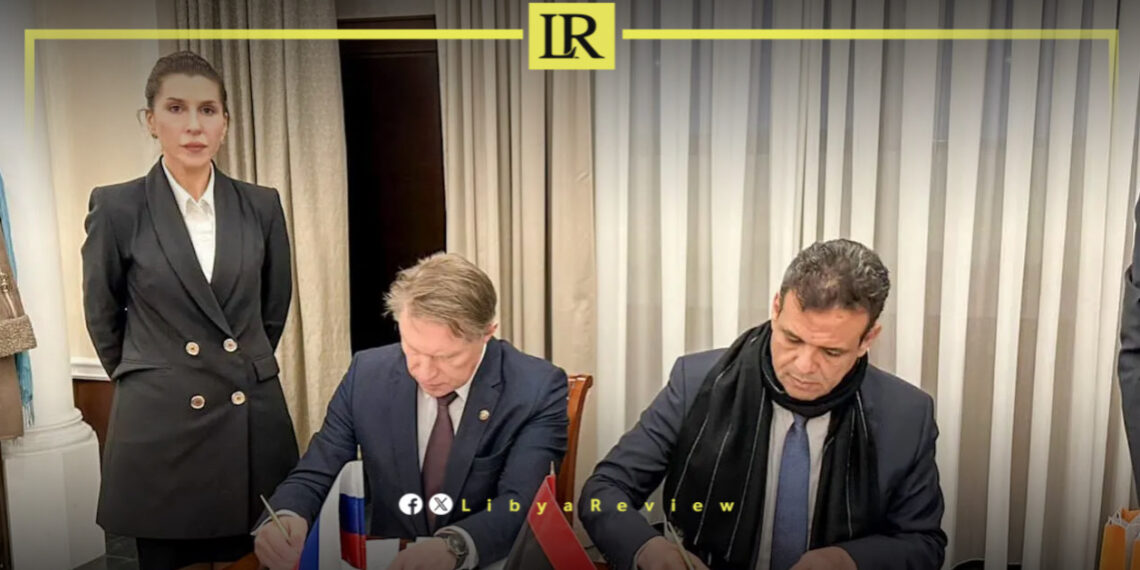During his visit to the Russian Federation, the Deputy Prime Minister of the Government of National Unity (GNU) and Acting Minister of Health, Ramadan Abu Janah, signed a healthcare cooperation agreement with the Russian Ministry of Health. This significant pact focuses on the development and exchange of expertise in various health-related fields.
The agreement emphasizes collaborative efforts in managing healthcare systems, offering short-term professional training, and enhancing maternal and child health protection. It also aims to implement digital technologies within the healthcare system and engage in joint medical scientific research.
Furthermore, the agreement includes activities such as exchanging organizational, statistical, and analytical information in healthcare. It plans to organize medical scientific conferences and establish direct contacts between Libyan and Russian scientific, educational, and medical organizations.
This partnership marks a significant step in fostering international cooperation in healthcare between Libya and Russia, aiming to improve the quality and accessibility of medical services in both nations.
Libya has been in chaos since a NATO-backed uprising toppled longtime leader Muammar Gaddafi in 2011. The county has for years been split between rival administrations.
Libya’s economy, heavily reliant on oil, has suffered due to the ongoing conflict. The instability has led to fluctuations in oil production and prices, impacting the global oil market and Libya’s economy.
The conflict has led to a significant humanitarian crisis in Libya, with thousands of people killed, and many more displaced. Migrants and refugees using Libya as a transit point to Europe have also faced dire conditions.
The planned elections for December 2021 were delayed due to disagreements over election laws and the eligibility of certain candidates. This delay has raised concerns about the feasibility of a peaceful political transition.
Despite the ceasefire, security remains a significant concern with sporadic fighting and the presence of mercenaries and foreign fighters. The unification of the military and the removal of foreign forces are crucial challenges.


